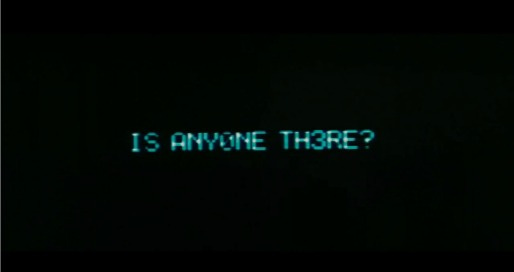Transcendence
"Transcendence" is technically sound, filled with an amazing cast and compelling ideas, but doesn't do much with any of it.
Johnny Depp stars as Will Caster, a brilliant scientist on the verge of creating sentient artificial intelligence. His wife, Evelyn (Rebecca Hall) and best friend, Max (Paul Bettany), debate with him the merits of creating such a being, and what purpose it could possibly have: Evelyn believes it could change the world for the better while Max believes it should be limited to practical medical applications. When Will is shot, Evelyn and Max set aside their philosophical differences and upload Will's brain pattern to the computer. Soon, the A.I. comes alive, representing itself with Will's likeness, voice and memories.

But is it really Will? If so, why is it requesting access to the stock market or to government databases...and what is it building out in the Nevada desert?
On the surface, "Transcendence" sounds like a standard techno-thriller. Skynet-lite. And for most of the film, director Wally Pfister and writer Jack Paglen are content to tell that story. Two years after Will's upload, we find Evelyn living with her is-he-or-isn't-he A.I. husband in a large underground bunker filled with nano-machines, created to heal the sick and disabled but also turn them into Borg-like computer-controlled drones. Max has long since run away and joined a group of rebels, anti-technology hackers led by Bree (Kate Mara). Evelyn grows more and more suspicious, and when she finally allies with Max, it becomes clear that the two who started this mess need to clean it up together.
Boom! Bang! Action!
As the film progresses, it becomes clear that Pfister and Paglen weren't happy telling such a cut-and-dry story. They aimed to tell a much braver, more nuanced story about whether or not human beings are capable of looking a benevolent techno-God of our own creation in the face and saying, "This is what we want.' The man-versus-machine story that propels the film's narrative and the story "Transcendence" really wants to tell go hand-in-hand, but Pfister and Paglen have too much trouble understanding how. In the end, we aren't really sure whom to root for, and given that the movie is predominately an action film, that creates serious dissonance.
Because the story never settles on what it wants to be, we never get a sense of what the characters want to be. The aforementioned Depp, Hall, Bettany, and Mara are joined by Cillian Murphy, Morgan Freeman and Xander Berkeley, not to mention smaller but equally talented names such as Clifton Collins Jr and Cole Hauser, but none of these actors are given good characters to work with. Most of them just stand around. Some of them shout platitudes about whether mankind is ready for machines. It's baffling. Bettany and Hall, in particular, never really have clear character motivations, which is a problem when they're the two main characters.
Normally, I'm attracted to films with an optimistic perspective on the future. I'm still excited by some of the story ideas conveyed in "Transcendence." Between this and last year's "Her," we're moving into a phase where entertainment accepts mass-communication technology as something to be embraced rather than outright feared. But "Transcendence" doesn't stick the landing and also doesn't quite know its target, and the result is a bit of a bore laced with a lot of much more interesting possibilities.


